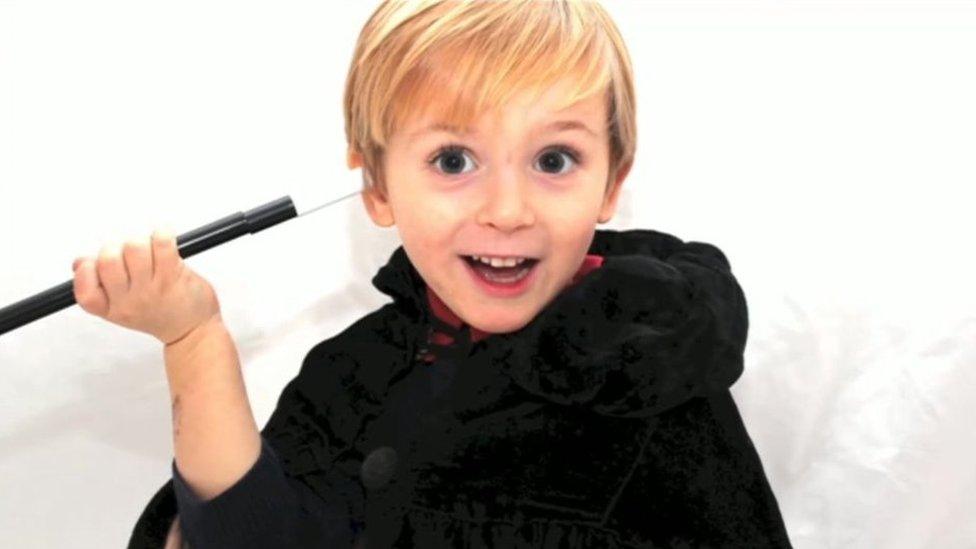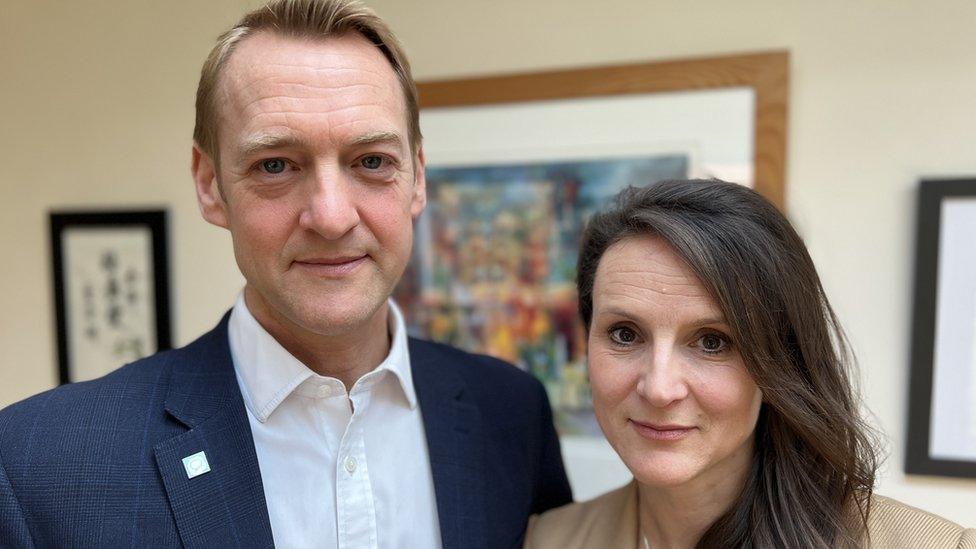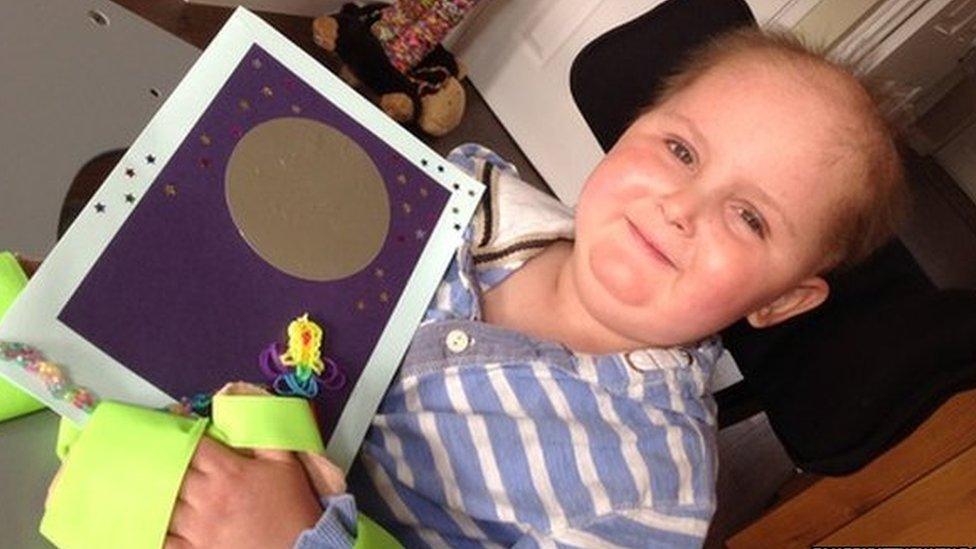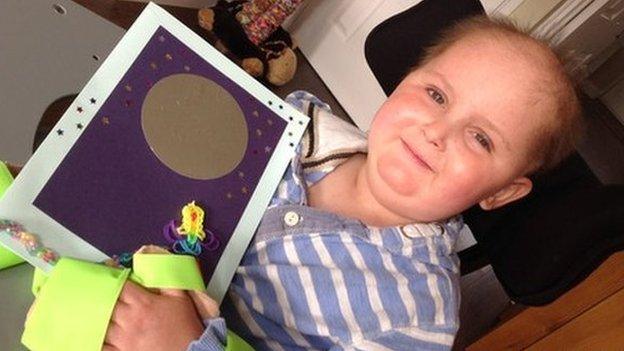Brain tumour funding: Skye Hall parents criticise ministers
- Published

Skye Hall died in 2014 when he was five years old
The parents of a five-year-old boy who died with an aggressive brain tumour say lives could have been saved if the government had followed through on its pledge to spend £40m on research.
Skye Hall, from Abingdon, Oxfordshire, became ill just before starting school.
He was treated with chemotherapy and radiotherapy for a year, but died in 2014 from the neuro-toxicity side effects of the treatment.
The government said it had "invested in every suitable application".
After his death, his family set up the Blue Skye Thinking charity which has raised £500,000 for research into new treatments.
In 2018 the government pledged £40m over five years, in honour of Dame Tessa Jowell, who died from brain cancer that year.
To date, it has released £16m.
Skye's parents, Sally and Andrew Hall, are backing a campaign calling on the government to treat brain tumour research as a priority.

Sally and Andrew Hall say they feel the government has broken a promise
Mr Hall said: "We believe lives could've been saved if research had taken place, for example, just monitoring the efficacy of treatments."
Ms Hall added: "We feel like they have broken their promise to all of the people who are facing a brain tumour now, and those that have yet to face one… but [they] can fix it."
According to the Buckinghamshire-based charity Brain Tumour Research just 1% of UK spending on cancer research has been allocated to brain tumours, yet they kill more children and adults under 40 than any other cancer.
'Closer to a cure'
At an MPs debate this week, it was stated that, of 95 applications for funding, just 13 had been granted.
Hugh Adams of Brain Tumour Research said: "It is very difficult to say, if we had funded 50% of them, that that would have made a difference in terms of lives saved.
"But what we can say with absolute certainty is that if we fund research we will get closer to a cure, if we don't, we won't."
A Department of Health and Social Care spokesperson said: "We've invested in every suitable application made and the funding will continue to be available for further studies to develop new treatments and therapies for brain tumours.
"To encourage further successful applications, we are investing in infrastructure, workshops for researchers and training for clinicians."

Follow BBC South on Facebook, external, Twitter, external, or Instagram, external. Send your story ideas to south.newsonline@bbc.co.uk, external.
Related topics
- Published23 September 2021

- Published1 September 2014

- Published23 July 2015
